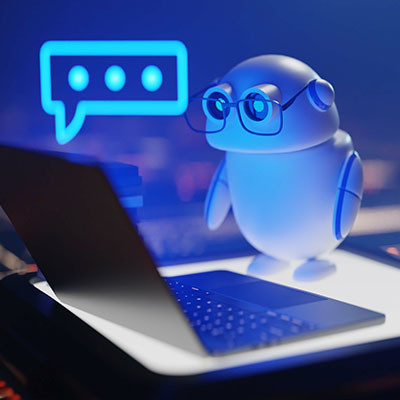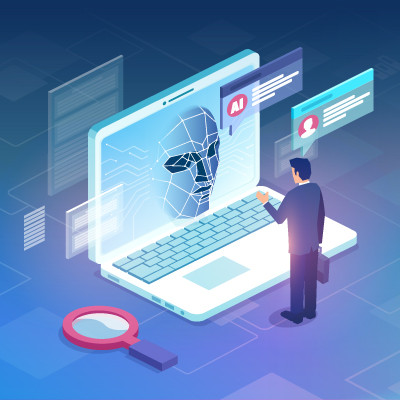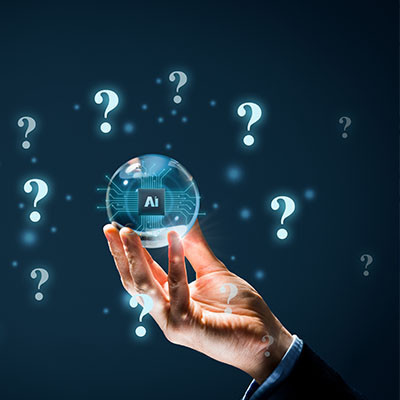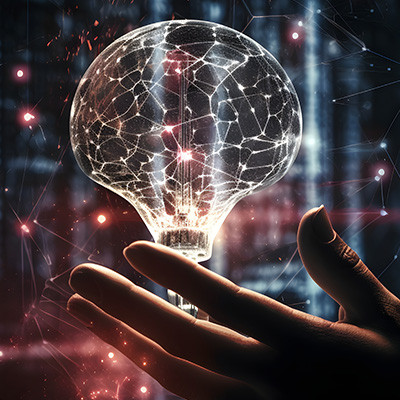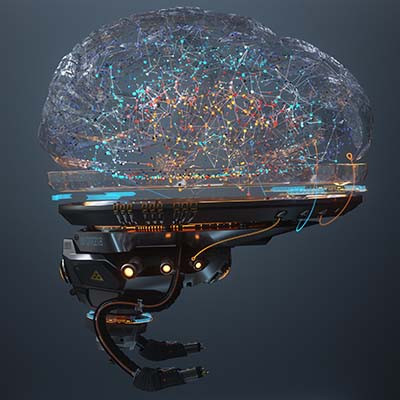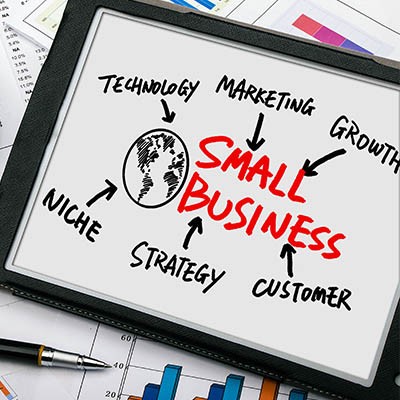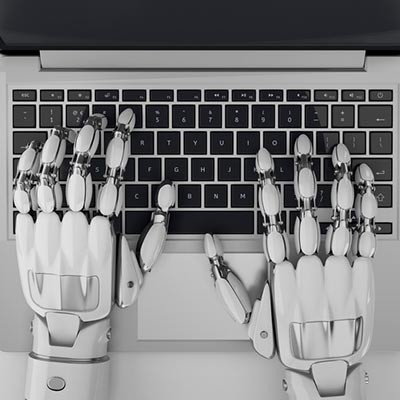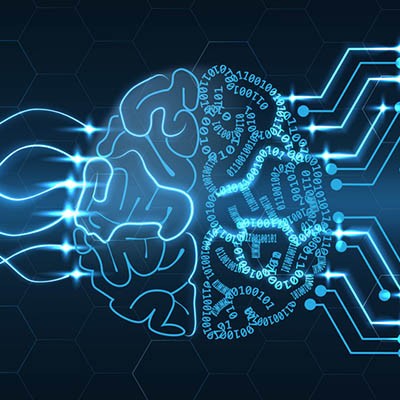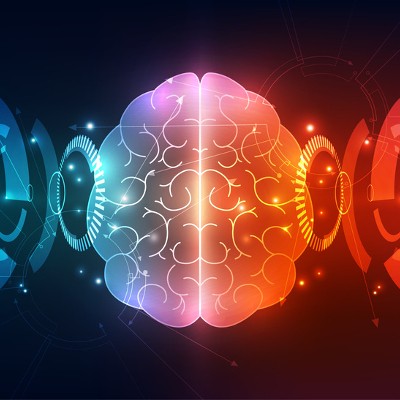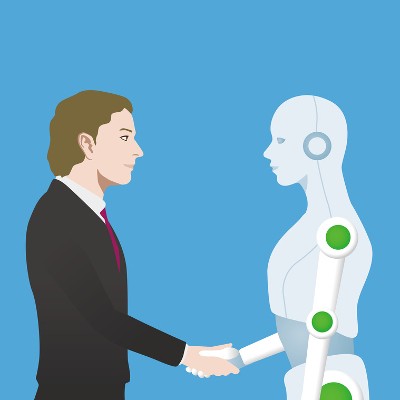Microsoft is constantly innovating to maintain its status as one of the world's largest and most well-respected technology companies. One of its prize projects is Copilot, an operating system-integrated artificial intelligence. In today’s blog, we’ll discuss some of the major changes coming to Copilot and how they can improve people’s lives at work and at home.
Global Tech Solutions Blog
Artificial intelligence's transformative potential is no longer just available to enterprise businesses. Now small businesses are increasingly using the technology to enhance efficiency, improve customer experiences, and drive innovation for the betterment of an organization. Today, we start to explore three popular ways in which small businesses use AI to refine the way they do business.
AI, or artificial intelligence, has become a staple of application development in recent years. The result is that businesses have more opportunities to address inefficient processes and optimize for time and cost. We wanted to share some of the most exciting ways AI has changed the way businesses operate for the better.
AI, or artificial intelligence, has made significant contributions to the world of business technology even at this stage of the game. AI can be used to streamline your business’ operations and processes, too. Let’s explore five ways that AI can help a business be more efficient and put forth their best efforts.
Technology has the power to hold businesses back when it’s not implemented correctly, but it also presents an opportunity to overcome challenges facing modern businesses. There are several interesting technologies that might seem strange at first for business purposes, but we suspect that they could bring significant value to the table for workers, customers, and your organization. Let’s look at these three technologies and how they might make significant contributions to your business’ continued success.
Science fiction shows artificial intelligence to be an entity compelled purely by logic, driven only by objective facts. AI tools used by businesses and in the real world, however, are a far cry from this perception. AI systems have some biases in their operations. Let’s take a look at some of them and how you can resolve these issues.
Artificial intelligence, or AI, is a technology that many industries have found themselves benefiting greatly from, especially in the domains of cybersecurity and automation. Unfortunately, for every one great use of something, hackers will find two bad uses for it. AI has dramatically changed the landscape of cybersecurity and, more interestingly, cybercrime. Let’s take a look at why these threats are so concerning.
Businesses need all of the advantages they can get against threats, especially considering the fact that many of them adapt and evolve in response to advances in security measures. Some security researchers are seeing great success with artificial intelligence measures, a concept that could eventually become the future of network security in the business world.
If you are concerned about your business’ ability to keep its network secure and data protected, you're not alone. More businesses than ever are utilizing modern strategies to ensure that their networks are safe, their hardware is stable, and that their data stays secure. With the continual shifts we are seeing in the threat landscape it is essential that cybersecurity continues to evolve. Today, we take a look at some of the innovations being made in cybersecurity, and what to expect out of future cybersecurity tools.
Today, large companies typically use their data to help them make more educated business decisions. This strategy can actually benefit smaller businesses as well. However, they often don’t think they have enough data to facilitate analytics or BI (Business Intelligence) platform. Let’s take a look at how small businesses can use their big data.
There are very few industries more reliant on compliance and proper procedures as the healthcare industry. Since healthcare depends so heavily on medical technology, the management of this IT becomes a focal point that must be considered when planning out any infrastructure or data dissemination policy. However, artificial intelligence could change this for the better. Here’s how.
Security continues to be a major pain point for businesses of all shapes and sizes, and with the overwhelming volume of new and emerging threats hitting the scene on a daily basis, many professionals have turned to automated solutions based around artificial intelligence to fight back. While this presents a considerable benefit, it also creates other issues that need to be addressed if we want to take advantage of it in the years to come. Is there a way to use A.I. for network security without putting your business at risk?
A.I. is one of those technologies that captivates the imagination with endless possibilities. You can’t turn your head these days without using something integrated with early artificial intelligence. Machine learning platforms, which are very rudimentary forms of A.I. are now being used to improve many of the tools a small business uses. Today, we will briefly go into what machine learning is and how small businesses are using it to their advantage.
Virtual assistants are some of the most common technologies out there, which is kind of a strange thing to say. With mobile devices taking over the personal and professional lives of users, we suppose it’s natural that virtual assistants have flourished in today’s workplace. What are these assistants, and what are they capable of?
Figuring out how to utilize platforms that depend on machine learning to boost an organization’s bottom line is one of the biggest puzzles for every modern business owner. After all, seemingly every new technology concept can be leveraged into enhanced profitability if it is rolled out right. In this case, many organizations have found ways to use human-created machines to learn how to do tasks that would be deemed too expensive if humans were to do them.
The notion of artificial intelligence has played out in fiction, on the silver screen, and on the small screen for decades. Instead of having sentient cyborgs that enslave humanity, people are using A.I for our benefit. Today, we take a look at the A.I. of 2018 and how your business can leverage it for your benefit.
There are many organizations in the world that simply can’t have cybercriminals and hackers interfering with their data. One of these organizations, CERN (whose acronym translates to the European Laboratory for Particle Physics) has far too powerful of a computer grid to allow hackers to access it. To keep it safe, CERN has deployed what may be the future of cybersecurity: artificial intelligence.
No security solution is perfect. Each one has its own set of pros and cons. For example, relying completely on an automated solution is thorough, but it will flag plenty of threats that aren’t really threats (aka, false positives). Meanwhile, a human overseeing security is great for spotting worrisome trends, but a human can’t possibly catch every single attack. With this dynamic in mind, a team of researchers from MIT has successfully blended the two.


